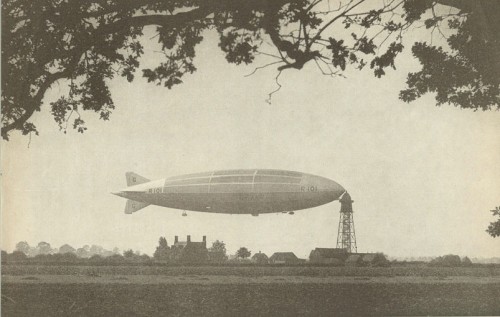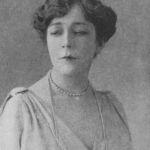Just as reading Orwell serendipitously led me to a reference to the next war in the air, so too has reading Aldous Huxley’s Brave New World. Here, Mustapha Mond, one of the Controllers of the world state, gives an impromptu history lesson (I’ve cut out unrelated, interleaved dialogue from another strand of the plot):
‘The Nine Years’ War began in A.F. 141.’
‘Phosgene, chloropicrin, ethyl iodoacetate, diphenylcyanarsine, trichlormethyl chloroformate, dichlorethyl sulphide. Not to mention hydrocyanic acid.’
‘The noise of fourteen thousand aeroplanes advancing in open order. But in the Kurfurstendamm and the Eighth Arrondissement, the explosion of the anthrax bombs is hardly louder than the popping of a paper bag.’
Ch3C6H2(NO2)3+Hg(CNO)2 = well, what? An enormous hole in the ground, a pile of masonry, some bits of flesh and mucus, a foot, with the boot still on it, flying through the air and landing, flop, in the middle of the geraniums — the scarlet ones; such a splendid show that summer!
‘The Russian technique for infecting water supplies was particularly ingenious.’
‘The Nine Years’ War, the great Economic Collapse. There was a choice between World Control and destruction. Between stability and …’1
‘A.F.’ is ‘After Ford’, actually the introduction of the Model T — making this 2049, give or take. So it’s not a near-future war for Huxley, writing in 1932. Naturally enough, though, it’s a war of its time: a massive Russian (presumably) air fleet attacks Berlin and Paris with high explosive,2 germs and gas. However, it’s obviously not a quick knock-out blow either. Along with the (consequent?) ‘great Economic Collapse’, the Nine Years’ War gave humanity the impetus for radical change, discarding liberalism, democracy and religion in favour of eugenics, social conditioning and the world state.
Put like that, there are obvious superficial similarities to H. G. Wells’ The Shape of Things to Come, published the following year. Of course, that ended in utopia whereas Brave New World is a dystopia, but clearly both Wells and Huxley looked at the rapid advances in technology (including military technology) and the world economic crisis, then several years old with no end in sight, and wondered if the conjunction of the two trends might not result in a future radically different from the past (an “ultimate revolution”, as Wells put it).
They weren’t alone, either — it seems there was a “utopian/dystopian” moment in the early 1930s. At least two other books written during the Depression take similarly long views: Michael Arlen’s Man’s Mortality (1933) and Olaf Stapledon’s astounding Last and First Men (1930). Aviation plays a part in both of these — in the former as the basis for a Kipling-esque world government called International Aircraft & Airways, in the latter as an important, almost spiritual, element of the culture of the First World State. But while the prevention of the next war, or the next war after that, is an important motivation for a world state in these novels, the main reason is economic; pretty understandable when you think about the shock of the world slump, particularly how crises seemed to spread from country to country. Economic control and planning on a global scale seemed inevitable to some, though whether it would be worth it in the end was debatable. Huxley suggested that people would have to be conditioned to consume products from an early age, through messages piped into every child’s ears in every sleeping moment:
In the nurseries, the Elementary Class Consciousness lesson was over, the voices were adapting future demand to future industrial supply. ‘I do love flying,’ they whispered, ‘I do love flying, I do love having new clothes, I do love …’3
The idea that people would need to be coerced into buying things seems absurd in today’s consumer society (though again, it would have made more sense during the Slump, when falling consumption led to falling production, which led to higher unemployment, which in turn led to falling consumption …) But maybe that just means that our secret masters have found more subtle means of persuasion :)
![]() This work is licensed under a Creative Commons Attribution-NonCommercial-NoDerivatives 4.0 International License.
Permissions beyond the scope of this license may be available at http://airminded.org/copyright/.
This work is licensed under a Creative Commons Attribution-NonCommercial-NoDerivatives 4.0 International License.
Permissions beyond the scope of this license may be available at http://airminded.org/copyright/.





Pingback: Chapter 1: From North and South to Everywhere: Framing the Apocalypse – Kristen Obaid